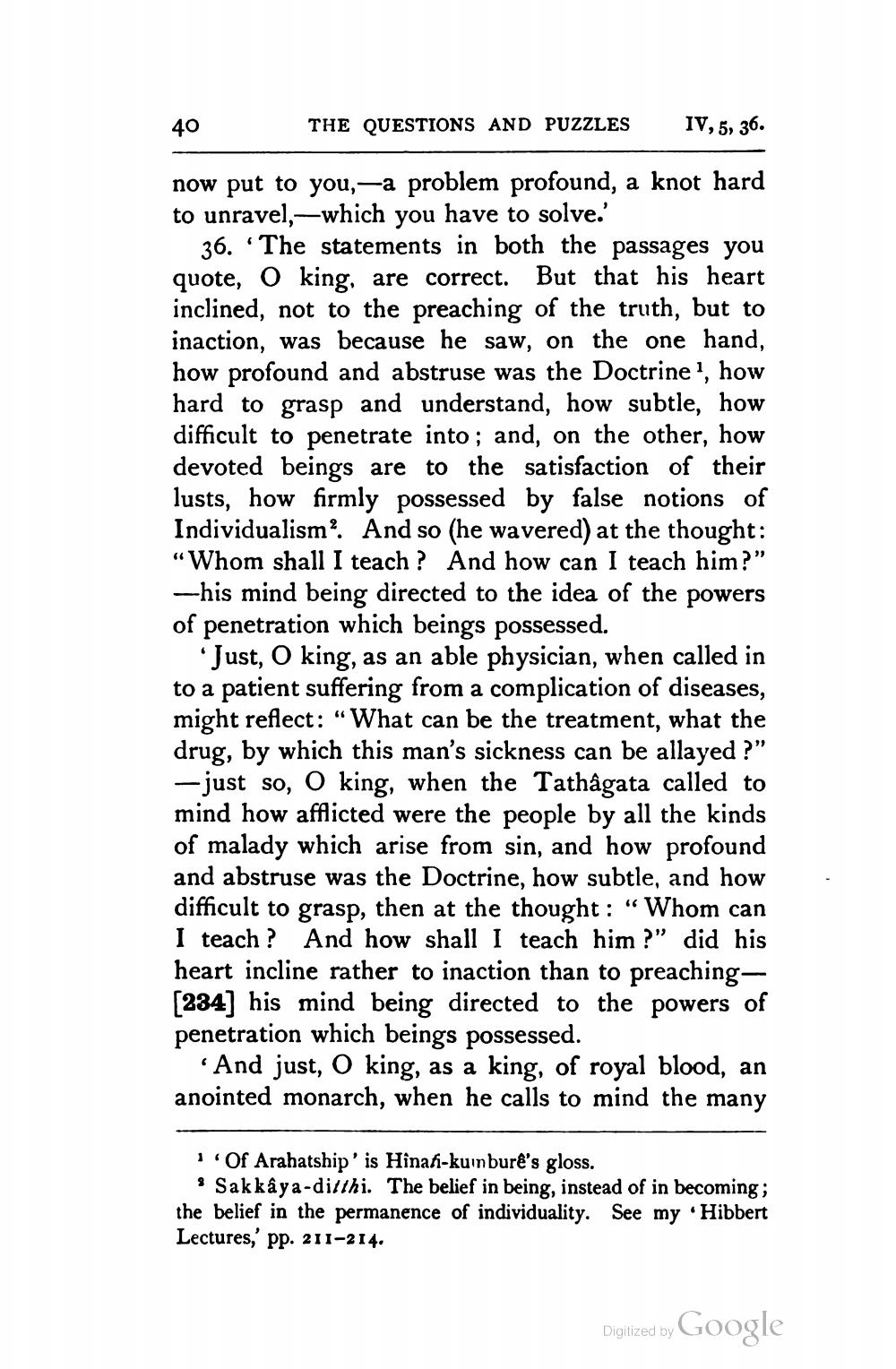________________
40
THE QUESTIONS AND PUZZLES
IV, 5, 36.
now put to you,-a problem profound, a knot hard to unravel,—which you have to solve.'
36. “The statements in both the passages you quote, Oking, are correct. But that his heart inclined, not to the preaching of the truth, but to inaction, was because he saw, on the one hand, how profound and abstruse was the Doctrine ?, how hard to grasp and understand, how subtle, how difficult to penetrate into; and, on the other, how devoted beings are to the satisfaction of their lusts, how firmly possessed by false notions of Individualism? And so (he wavered) at the thought: “Whom shall I teach? And how can I teach him?"
-his mind being directed to the idea of the powers of penetration which beings possessed.
"Just, О king, as an able physician, when called in to a patient suffering from a complication of diseases, might reflect: “What can be the treatment, what the drug, by which this man's sickness can be allayed ?"
- just so, O king, when the Tathagata called to mind how afflicted were the people by all the kinds of malady which arise from sin, and how profound and abstruse was the Doctrine, how subtle, and how difficult to grasp, then at the thought : “Whom can I teach ? And how shall I teach him ?" did his heart incline rather to inaction than to preaching[234] his mind being directed to the powers of penetration which beings possessed.
And just, o king, as a king, of royal blood, an anointed monarch, when he calls to mind the many
1 Of Arahatship' is Hinafi-kuin bure's gloss.
. Sakkâya-ditthi. The belief in being, instead of in becoming ; the belief in the permanence of individuality. See my Hibbert Lectures,' pp. 211-214.
Digitized by Google




